Say what you want about the Dishonored series, but it absolutely helped to put Arkane Studios on the map. Practically overnight, Arkane went from relative unknowns to becoming the developer to watch, with their first-person stealth/action romp Dishonored capturing the hearts of gamers and press the world over. Teleporting in, stabbing your target and disappearing into the night will never get old, leading to plenty of fans begging for Dishonored 3.
Unfortunately, the Dishonored series seems to have dropped off the face of the earth, with Arkane moving on to develop new games and IP. Meanwhile, Arkane’s parent company Bethesda was purchased by Microsoft, leading to the developer’s IP being placed in a sort of limbo. Would a traditionally multi-platform game be worth making if it was to instead be an exclusive? We’re asking the question: will we ever see Dishonored 3?
The History of Dishonored
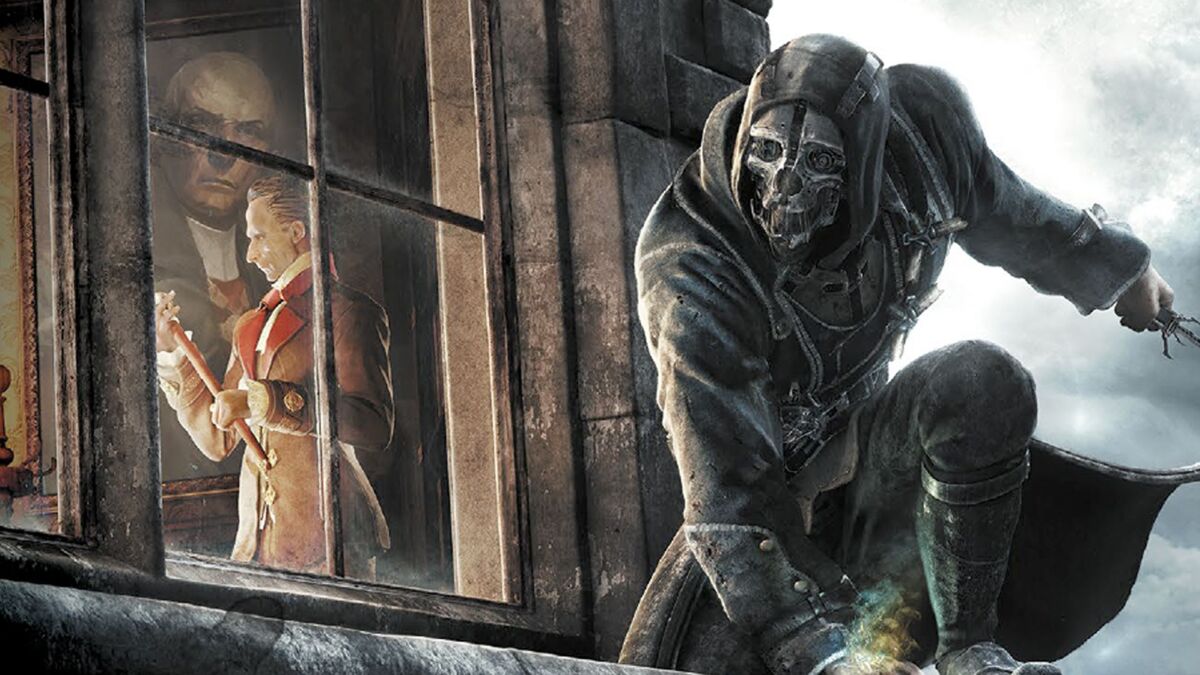
Dishonored was the first game from Arkane after Bethesda acquired the developers in 2010. Before then, Arkane weren’t known for a lot, with their most prominent games being Arx Fatalis and Dark Messiah of Might & Magic. In fairness, Dark Messiah’s focus on powerful spells and physics shenanigans would go on to create the formula that Arkane games would be known for in the 2010s and beyond, but until the release of Dishonored, they were somewhat of an unknown commodity. Still, Bethesda saw something in them, tasking them with developing Dishonored.
You play as Corvo Attano, a former bodyguard to the Empress of the city of Dunwall who has been framed for her murder. After being visited by the mysterious Outsider, Corvo is given supernatural powers which he uses to enact vengeance on those who would wrong both him and the city, while also trying to rescue the Empress’ daughter, Emily. In order to do so, you’ll run around the city, using cool powers and just generally being a nuisance to the occupying forces.
During development, Arkane wanted to accentuate the powers that the player would wield in-game, with the developers designing the game’s level around using the various abilities in combination with each other. Using the double jump with the blink teleport meant players could access new areas with which to tackle the different levels, opening up a wealth of options for the more imaginative players. It’s safe to say I wasn’t amongst those players, though. I’m the guy causing high chaos by stabbing everyone.
When speaking to the Penny Arcade Report, creative director Raf Colantonio spoke about the decision to let players utilise the tools at their disposal in the way that they saw fit: “Allowing players to break the game a little bit, and I mean things like finding shortcuts and doing things that surprise us… as long as the area itself is protected, that’s what matters. Inside the sandbox, the mission itself, it doesn’t matter how you do it.”
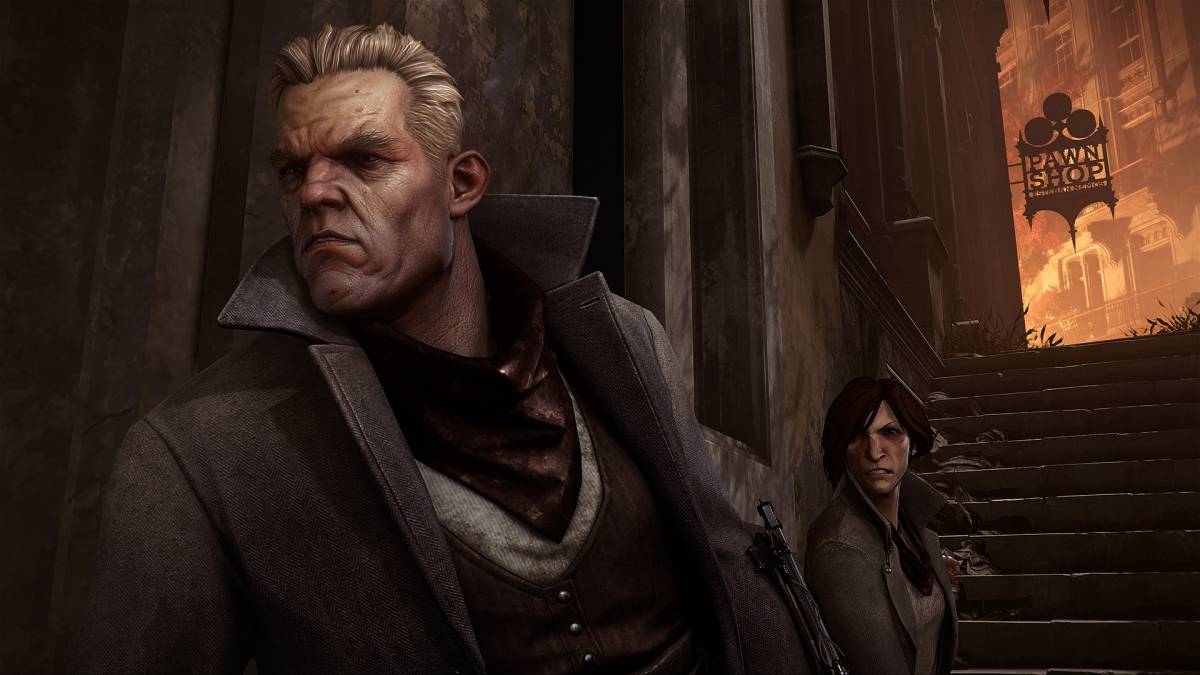
Using a host of powerful abilities would probably come off a bit strong, however, and Arkane were keen to avoid the player finding Dishonored too easy. While speaking to Joystiq, Colantonio said: “It was a hard paradox for us to get right in the game design, because we wanted to give you very strong powers, to make you really a badass, but at the same time we didn’t want the game to be too easy. So it took awhile to get it right, and some of it is just obvious tuning. Every power has a duration, cost of mana, and some other tunable properties … So even if your power is incredibly strong, you can mitigate it by saying ‘Well, it only lasts three seconds.'”
Dishonored drew attention for its approach to how the world would react to playstyles. If players tried to complete the game mostly pacifist, killing only those required (or none at all, if you were good enough), the world would remain in a state of low chaos. However, if you indiscriminately murdered everyone, the world would enter high chaos, which’d leave plague rats overrunning the streets, while one character would even betray you at the end, hating the monster that you’d become.
This decision game from both Colantonio and Harvey Smith, co-director and co-writer, who decided that massacring everyone only to be called a hero at the end didn’t line up with their viewpoint, confirming in an interview with Kotaku: “Everybody just wants to be told in a video game that you’re great, no matter what you do. If you slaughter everybody—you killed the maids, you killed the old people, you killed the beggars—you’re great, here’s a medal, you’re a hero.”
He continues: “We decided that sounds psychotic. It doesn’t match our values, it doesn’t match the way the world works, it doesn’t match the way any other fiction—imagine a novel where a guy wakes up in the morning, kills everybody in the house, goes down the street, kills everybody on the way to work, kills everybody in the office, and then at the very end of the novel, there is a scene where he is given a medal and made some sort of hero and anointed in some way. It doesn’t make any sense. What we wanted was to let you express yourself in the game, but to have the world react to that, at least in some way.”
Dishonored launched in October of 2012 on PC, PS3 and Xbox 360, and would prove to be a critical hit, as reviewers loved the gameplay and stealth mechanics on offer. Being able to use all those abilities to effectively stealth your way through the game led to Dishonored scoring a 91 on Metacritic, though the story didn’t quite live up to the same standards. As for sales, Dishonored would ultimately rank as the ninth best selling new IP of the 2010s, which is certainly an impressive feat.
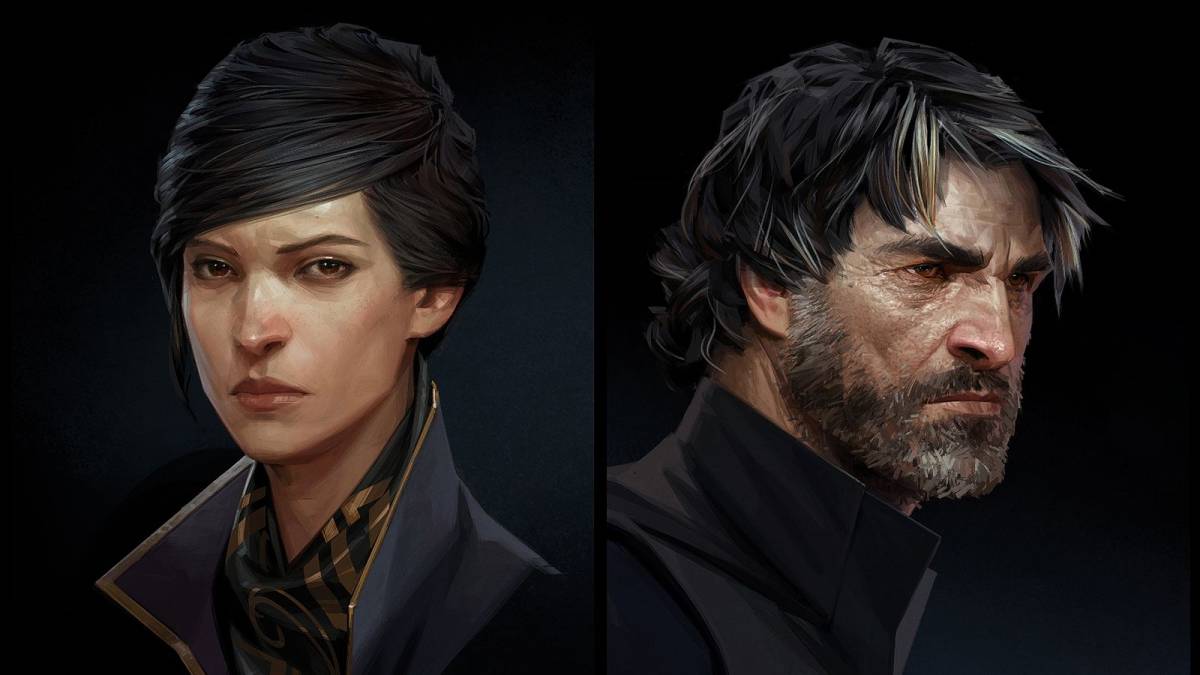
Dishonored received multiple DLC, including Dunwall City Trials, a challenge mode that allowed players to test their skills, along with a two-part campaign focused on primary antagonist Daud. The Knife of Dunwall and The Brigmore Witches, which introduced new gadgets and abilities. All of the above would form part of the Definitive Edition of the game, a PS4 and Xbox One re-release that launched before the release of the sequel.
Dishonored 2, which launched on PC, PS4 and Xbox One in November 2016, was set 15 years after the events of the original game, with players choosing to either take on the role of Emily or Corvo, as they dealt with a new invading threat against Dunwall. Much like the first game, your actions in this game have consequences, as murdering everyone leads to a high chaos state. However, a new wrinkle was added, as NPCs could be either sympathetic, guilty, or murderous. Stabbing a sympathetic NPC leads to more chaos, while doing the same for murderous NPCs leads to less chaos than usual.
A sequel to the first game wasn’t exactly on the cards for Arkane, as the studio was spreading itself thinner than usual at the time by developing Prey alongside Dishonored 2. Arkane Lyon were largely responsible for the development of Dishonored 2, while Arkane Austin handled the development duties of Prey. The game was built on Void Engine, which is based on id Tech 6, but Arkane notes that around 70% of the engine was rewritten for the game.
Dishonored 2 would prove to be a considerable critical success for Arkane and Bethesda, with the game earning an 88 on Metacritic. Again, the story wasn’t exactly considered a highlight, but reviewers loved the fact that Dishonored 2 was a more ambitious game than its predecessor, with new mechanics and abilities that enhanced the player’s fun. However, based on UK charts, Dishonored 2’s physical sales were down compared to the original, and would drop considerably more in the second week of sale.
What Happened To Dishonored?
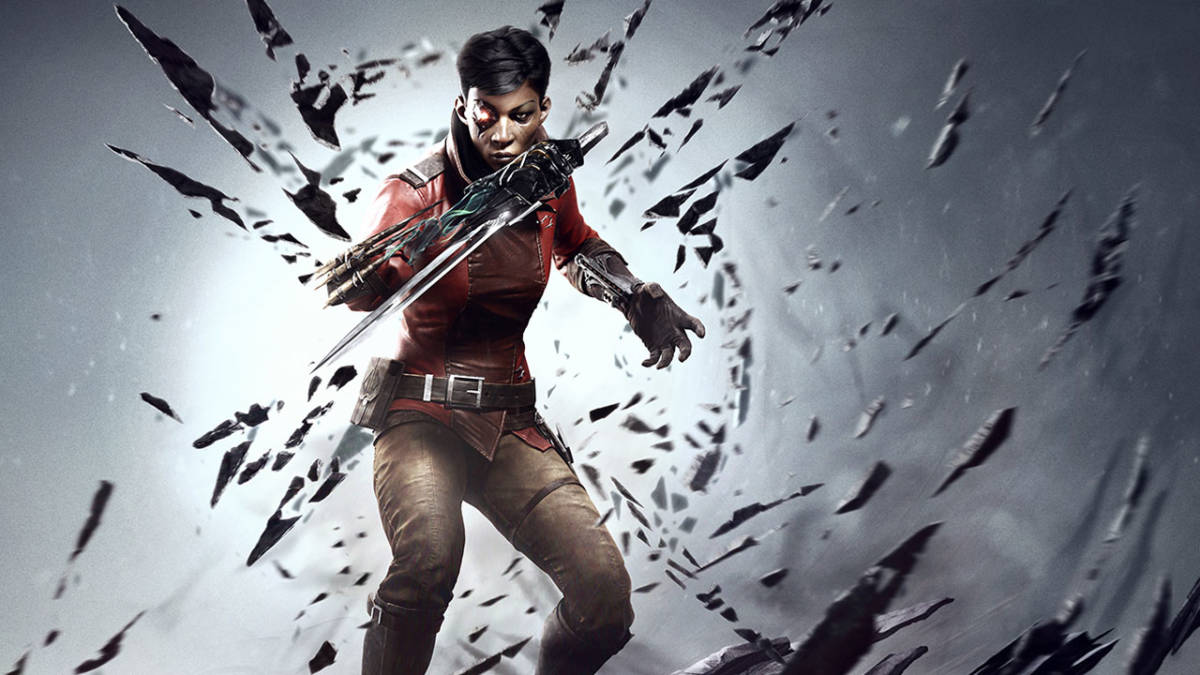
Dishonored is somewhat of a short-lived series because it stopped with the third installment, a standalone expansion in the form of Dishonored: Death of the Outsider. As the name would imply, you’re off to kill The Outsider, though instead of focusing on Emily or Corvo, you play as Billie Lurk, an assassin looking to reunite with her old mentor, Daud. Together, the two plan on taking the fight to the supernatural entity.
In a way, Death of the Outsider represents Arkane somewhat cutting loose and allowing the players to truly cause anarchy within the Dishonored world. The chaos system which governed the morality within the first two Dishonored games was completely absent, while players are given all of their supernatural powers from the get-go, allowing them to truly get stuck into the meat of the gameplay without having to wait for more upgrades.
While Death of the Outsider might have seemed like a way to cash in on the Dishonored name to make some money, the outline of it was actually in consideration for a long time. Harvey Smith, in an interview with GameSpot, details how the main premise was considered during the early stages of Dishonored 2’s development:
“We had a lot of discussions about this for the DLC–which is now a stand-alone expansion–it could be someone’s first foray into Dishonored story. But early on in Dishonored 2, like five years ago, I suggested for DLC that we should let players go into the Void and let players decide if they want to kill the Outsider or not. When we finished D2, we started thinking more about what we could do, and we always ended up going back to Billie Lurk. I just love Billie Lurk, and I wanted to see what we could do with her.”
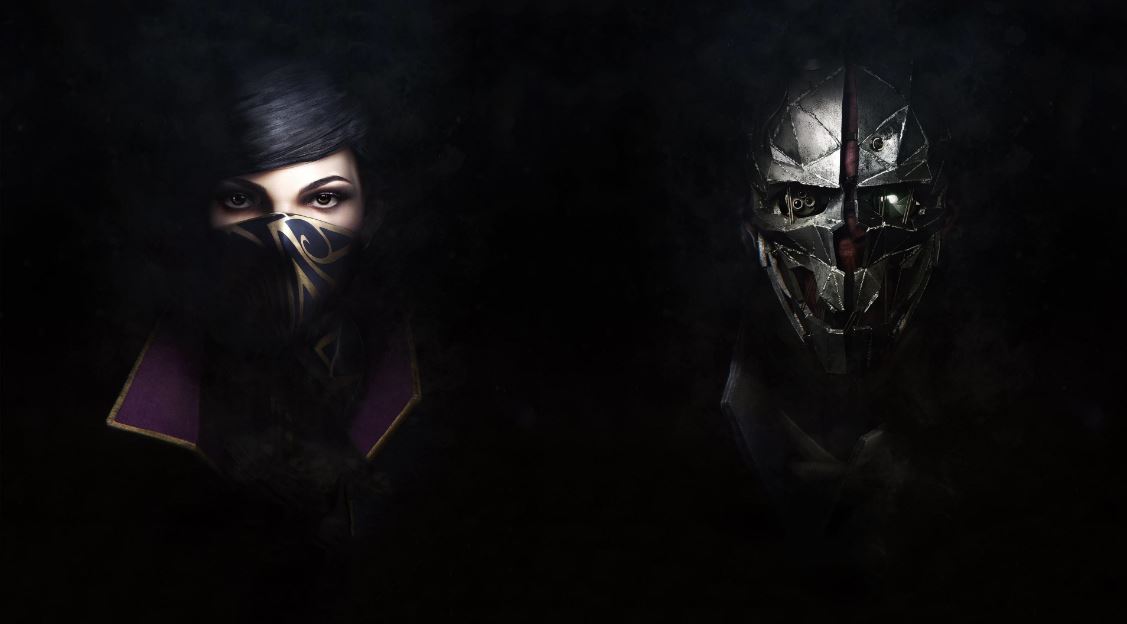
Even before launch though, Death of the Outsider was marketed as the end of the current era of Dishonored, with any future games destined to focus on a new set of characters and abilities. This is a sentiment that was perhaps best described by Lead Game Designer in an interview with IGN, who described what Dishonored meant to the development team during the course of the series’ lifecycle, and what the future would hold for Arkane:
“Dishonored has been more than 8 years of our lives. It’s been a huge chunk of one’s life. Some of us got married since then, had kids. I think we want to experiment with some stuff, while keeping our values, what’s core, while building these complex interesting multilayered games that allow you to play the way you want. We might direct our exploration more on one side, more on the other side, move the sliders around. There are other areas I can think of in game design, narrative design, I’d like to explore. And it will be fun. We have a great team at Arkane. […] We don’t want to be restrained and say this is the framework that we have to work within and have to do that for 10 more years. But we’re Arkane, we’ll stay Arkane.”
Dishonored: Death of the Outsider earned great reviews, sitting on an 84 as its highest Metacritic score. Some felt it was a bit of a watered-down Dishonored experience, citing the lack of chaos as an example, but many agreed that this was another fine example of Arkane proving their worth as an FPS developer unlike any other.
Unfortunately, it’s sales where Dishonored: Death of the Outsider appears to be somewhat of a letdown. Exact sales figures are hard to come by, though the general consensus is that Death of the Outsider bombed commercially. Given that Dishonored 2 was already a marked decrease on the original game’s sales, it’s not unreasonable to infer that a game which follows directly on from the events of that game might have been an even tougher sell.
The Future Of Dishonored
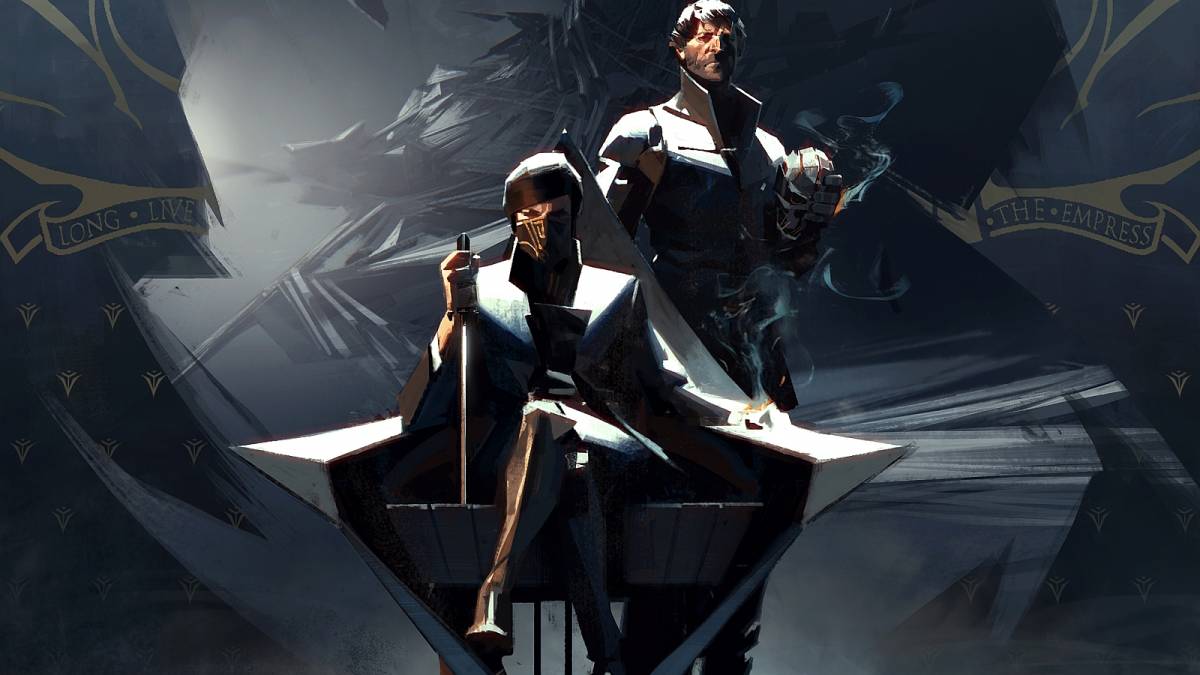
Arkane has made it clear over the years that there’s still a potential future for the Dishonored series, and that while the original story arc featuring Emily and Corvo is over, there’s an opportunity for the developers to revisit the franchise in some form in the future. However, the question is whether or not Dishonored 3 is worth the investment for Arkane — or Microsoft.
For some reason, Arkane has become a developer synonymous with quality titles, even if those games never seem to garner the commercial appeal that they deserve, the most notable example being Prey. Largely considered one of the best games of 2017, and nominated for numerous Game of the Year awards, Prey didn’t exactly draw record sales figures, launching behind the Switch port of Mario Kart 8 Deluxe in the UK.
Sales were down 60% from Dishonored 2, which isn’t exactly a stellar number to begin with. The decision to hold review copies until the day of release is cited as a reason why the sales slumped. Prey would go on to achieve the top spot in the UK charts a week later, likely due to reviews and word of mouth about the game, and it’s now considered a diamond in Arkane’s portfolio, but the overall sales were not kind.
In a Noclip documentary focused on Arkane and Prey, one of the key anecdotes is how it took one of the designers six months to effectively code an elevator to work for a 30 second ambush segment. Immersive sims, the likes of which Arkane have developed over the years, take so much manpower and investment in order to become the stellar titles they are by the end. But, with seemingly very little return on investment, is it worth making games like Dishonored 3?

Perhaps this is why Arkane are moving towards more bombastic action in more recent offerings. Deathloop brings the power fantasy and exploration seen in Dishonored, and adapt it towards a fast-paced shooter with time loop mechanics. It’s still chock full of Arkane inventiveness, but the inherent premise feels like an easier game to market than “stealth game where murder is bad, actually”.
There’s also the upcoming Redfall, Arkane’s Xbox exclusive co-op vampire shooter that sees players using unique abilities as one of four characters in order to liberate a town from the clutches of the undead. The different abilities should give Redfall that distinct Arkane flavour, but a co-op game (which will likely be launching on Game Pass, no less) feels like something more inherently appealing to a wider market of players. They’re not for everyone, but typically it’s easier to convince someone to buy a game if you can play it together, instead of a single-player game.
On the subject of Redfall, Xbox’s acquisition of Bethesda and subsequently Arkane leaves the developer in somewhat of a state of limbo. If Arkane were to revisit Dishonored, we’d have to assume that the eventual game would be an Xbox exclusive, but with the original series having been multi-platform, a lot of fans would be left out in the cold. Then again, Bethesda doesn’t seem too fussed about that when it comes to The Elder Scrolls 6, so who knows?
On top of that, the lacklustre sales for the Dishonored series as a whole might be enough to dissuade Microsoft from commissioning a full Dishonored 3 in the first place, or if they did go for it, it’d likely come with some kind of co-op or multiplayer element. Something live service-y that can support players long after the campaign is finished.
It’s clear that Arkane has such incredible love for the Dishonored series, as you can see its influence today in Deathloop, and you’ll likely see other elements of it in future games like Redfall. While Emily and Corvo appear to be done and dusted, there’s a chance we’ll be Blink-assassinating royalty again for Dishonored 3 in the future.
READ MORE: Will We Ever See A New Resistance Game?
Some of the coverage you find on Cultured Vultures contains affiliate links, which provide us with small commissions based on purchases made from visiting our site.
